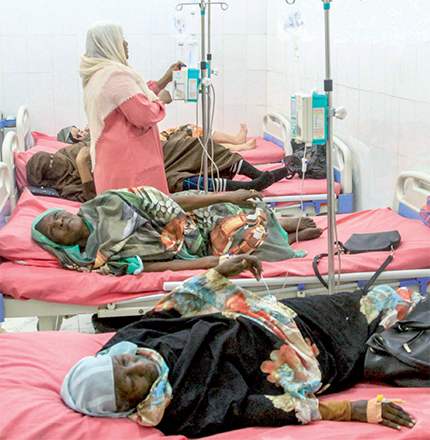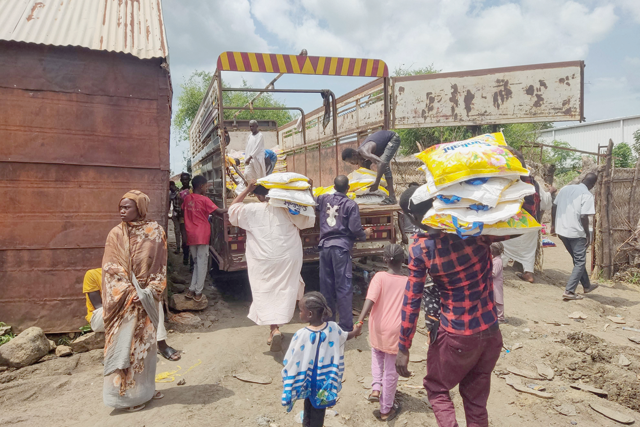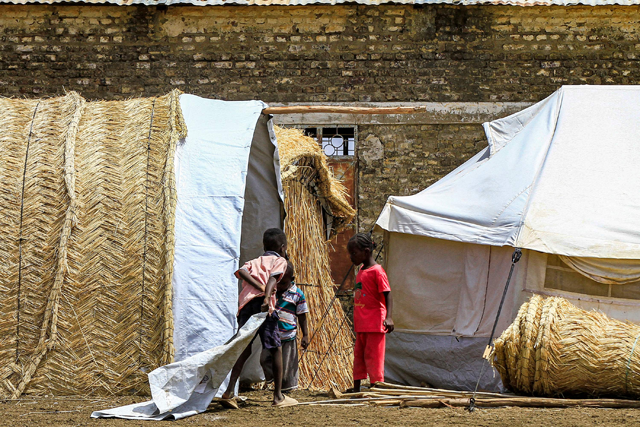CAIRO — War-torn Sudan is on a "countdown to famine" ignored by world leaders while humanitarian aid is only "delaying deaths", Norwegian Refugee Council (NRC) chief Jan Egeland told AFP on Saturday.
"We have the biggest humanitarian crisis on the planet in Sudan, the biggest hunger crisis, the biggest displacement crisis... and the world is giving it a shrug," he said in an interview from neighbouring Chad after a visit to Sudan this week.
Since April 2023, war has pitted Sudan's regular army against the paramilitary Rapid Support Forces (RSF), killing tens of thousands of people and uprooting more than 11 million.
The United Nations says that nearly 26 million people inside Sudan are suffering acute hunger.
"I met women barely surviving, eating one meal of boiled leaves a day," Egeland said.
One of few organisations to have maintained operations in Sudan, the NRC says some 1.5 million people are "on the edge of famine".
"The violence is tearing apart communities much faster than we can come in with aid," Egeland said.
"As we struggle to keep up, our current resources are merely delaying deaths instead of preventing them."
'Me first' politics
Two decades ago, allegations of genocide brought world attention to Sudan's vast western region of Darfur where the then government in Khartoum unleashed Arab tribal militias against non-Arab minorities suspected of supporting a rebellion.
"It is beyond belief that we have a fraction of the interest now for Sudan's crisis than we had 20 years ago for Darfur, when the crisis was actually much smaller," Egeland said.
He said Israel's wars in Gaza and Lebanon and Russia's war with Ukraine had been allowed to overshadow the conflict in Sudan.
But he said he detected a shift in the "international mood", away from the kind of celebrity-driven campaigns that brought Hollywood star George Clooney to Darfur in the 2000s.
"More nationalistic tendencies, more inward-looking," he said of Western governments led by politicians compelled to "put my nation first, me first, not humanity first."
"It will come to haunt" these "short-sighted" leaders, when those they failed to assist in their homeland join the tide of refugees and migrants headed north.
In Chad, he said he had met young people who just barely survived ethnic cleansing in Darfur, and had made the decision to brave the perilous crossing of the Mediterranean to Europe even though they had friends who had drowned.
'Freefall into starvation'
Inside Sudan, one in every five people has been displaced by this or previous conflicts, according to UN figures.
Most of those displaced are in Darfur, where Egeland says the situation is "horrific and getting worse".
The North Darfur state capital of El-Fasher has been under siege by the RSF for months, nearly disabling all aid operations in the region and pushing the nearby Zamzam displacement camp into famine.
But even areas spared the devastation of war "are bursting at the seams," Egeland said. Across the army-controlled east, camps, schools and other public buildings are filled with displaced people left to fend for themselves.
On the outskirts of Port Sudan -- the Red Sea city where the army-backed government and UN agencies are now based -- Egeland said he visited a school sheltering more than 3,700 displaced people where mothers were unable to feed their children.
"How come next door to the easiest accessible part of Sudan... there is starvation?" he asked.
According to the UN, both sides are using hunger as a weapon of war. Authorities routinely impede access with bureaucratic hurdles, while paramilitary fighters have threatened and attacked aid workers.
"The ongoing starvation is a man-made tragedy... Each delay, every blocked truck, every authorisation delayed is a death sentence for families who can't wait another day for food, water and shelter," Egeland said.
But in spite of all the obstacles, "it is possible to reach all corners of Sudan," he said, calling on donors to increase funding and aid organisations to have more "guts".
"Parties to conflicts specialise in scaring us and we specialise in being scared," he said, urging UN and other agencies to "be tougher and demand access".


















